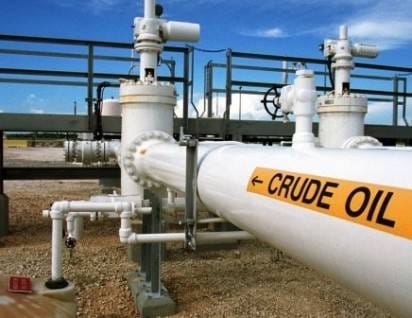Breaking
Surprising Surge: Qua Iboe Crude Oil Prices Soar Above $100 per Barrel Due to Supply Shortage

In a stunning turn of events, the price of Qua Iboe, a high-quality Nigerian crude oil, has skyrocketed to over $100 per barrel, sending shockwaves through the global energy markets.
This abrupt and remarkable surge in price is primarily attributed to an acute supply deficit that has caught industry experts and investors off guard.
Qua Iboe, known for its light, sweet characteristics, is highly sought after in the international crude oil market due to its low sulfur content and ease of refinement. Historically, its price has been relatively stable, hovering in the $60 to $70 range per barrel. However, the recent price spike has pushed it well beyond the $100 mark, marking a significant milestone.
The supply deficit driving this unprecedented surge in Qua Iboe’s price can be traced back to a confluence of factors. Firstly, geopolitical tensions in key oil-producing regions have disrupted production and transportation, impacting the global supply chain. Unforeseen conflicts and logistical challenges have reduced the availability of Qua Iboe and other crucial oil varieties.
Furthermore, the lingering effects of the COVID-19 pandemic continue to cast a shadow over the oil industry.
Many oil-producing nations curtailed their production capacities during the pandemic’s peak, and some are struggling to return to pre-pandemic levels. The result is a supply gap that has yet to be fully closed.
READ ALSO: Ecobank Introduces “EPAC Studios” To Promote Africa’s Creative Industry
Additionally, environmental concerns and growing pressure to transition to cleaner energy sources have led to reduced investments in traditional oil exploration and production. As a result, the industry is facing a scarcity of new reserves, further exacerbating the supply shortage.
The implications of this dramatic increase in Qua Iboe’s price are far-reaching. Consumers around the world are likely to feel the impact at the gas pump, as higher crude oil prices tend to translate into higher fuel costs. This could have ripple effects on inflation rates and economic stability, posing challenges for policymakers and central banks.
Investors and oil companies, on the other hand, stand to benefit from this surge in prices. Oil-producing nations with significant reserves of Qua Iboe, such as Nigeria, may experience a windfall in revenue, potentially bolstering their economies. However, this windfall also highlights the vulnerability of these economies to the volatile nature of the oil market.
In conclusion, the unexpected surge in the price of Qua Iboe oil, surpassing the $100 per barrel mark, underscores the fragility of the global energy market.
Geopolitical tensions, the lingering effects of the pandemic, and the push for cleaner energy sources have converged to create a supply deficit that is reshaping the industry’s landscape.
As the world grapples with the consequences of this price surge, it serves as a stark reminder of the importance of diversifying energy sources and investing in greater energy stability.










